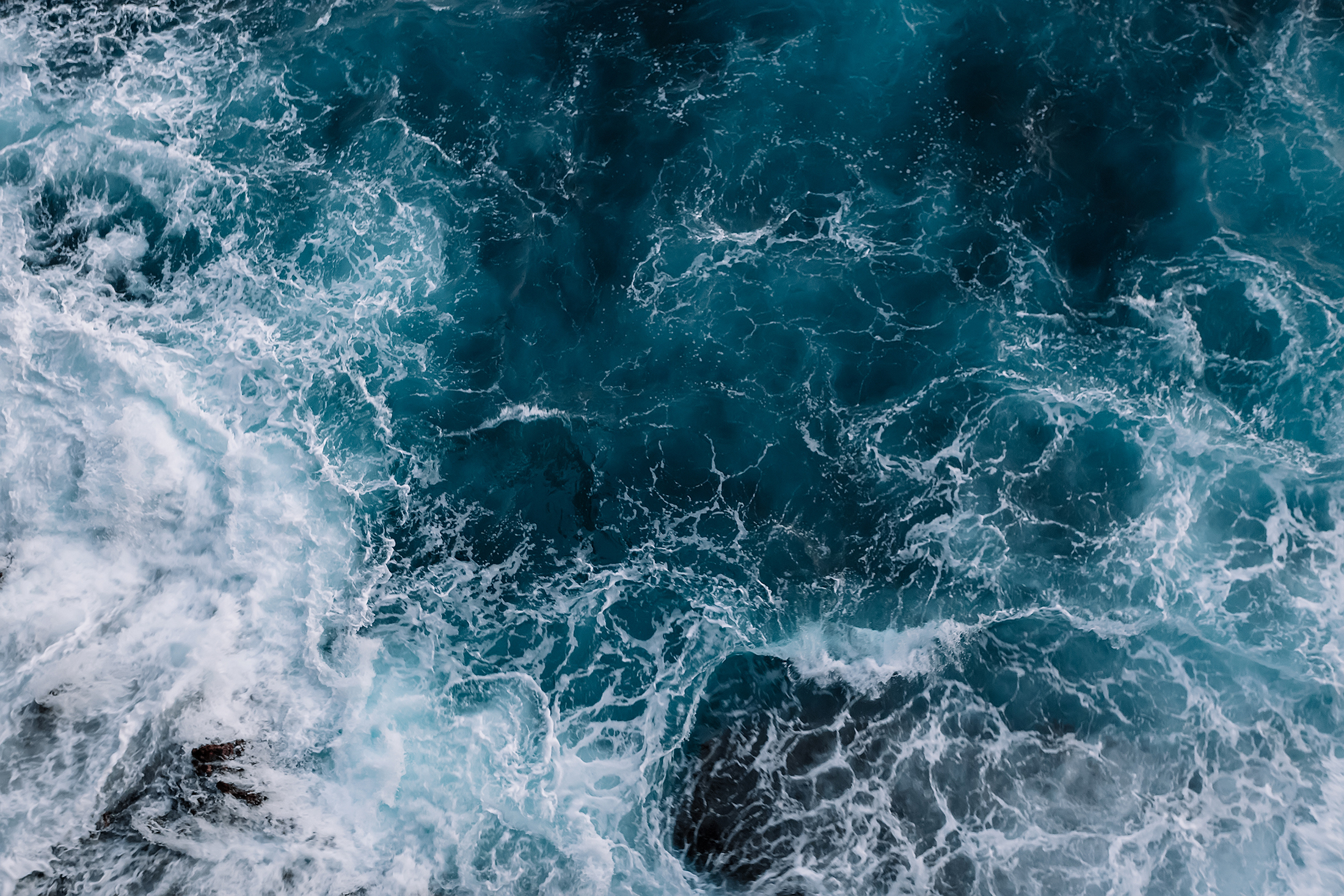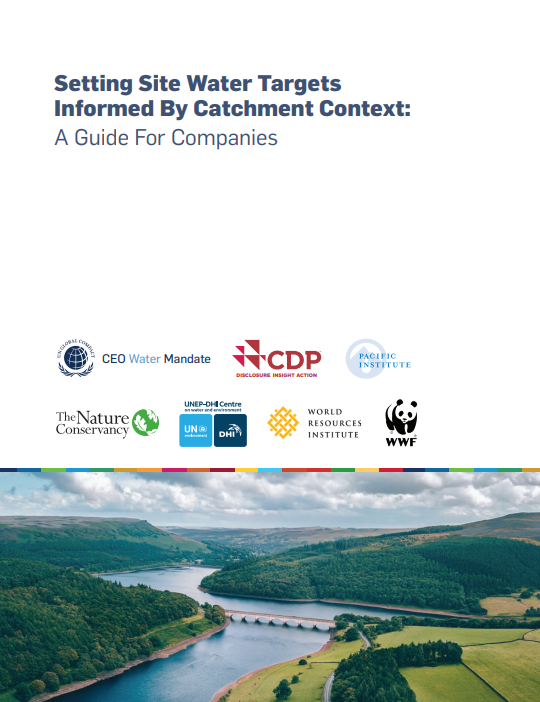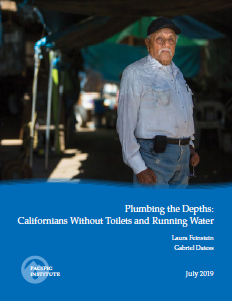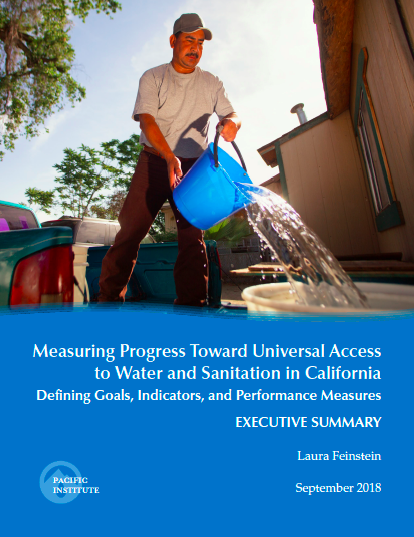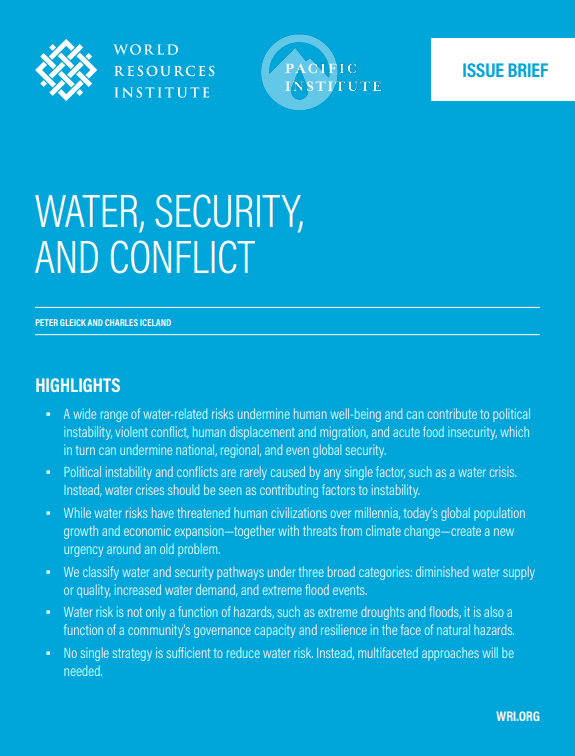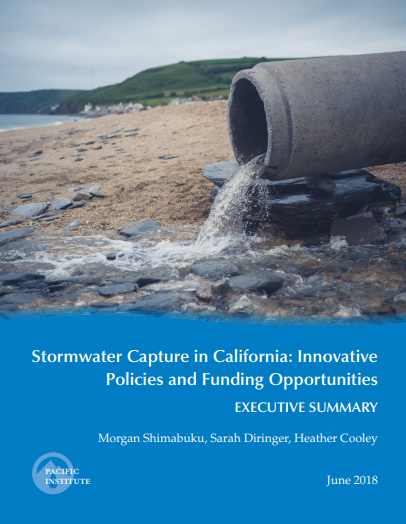1070 Resources
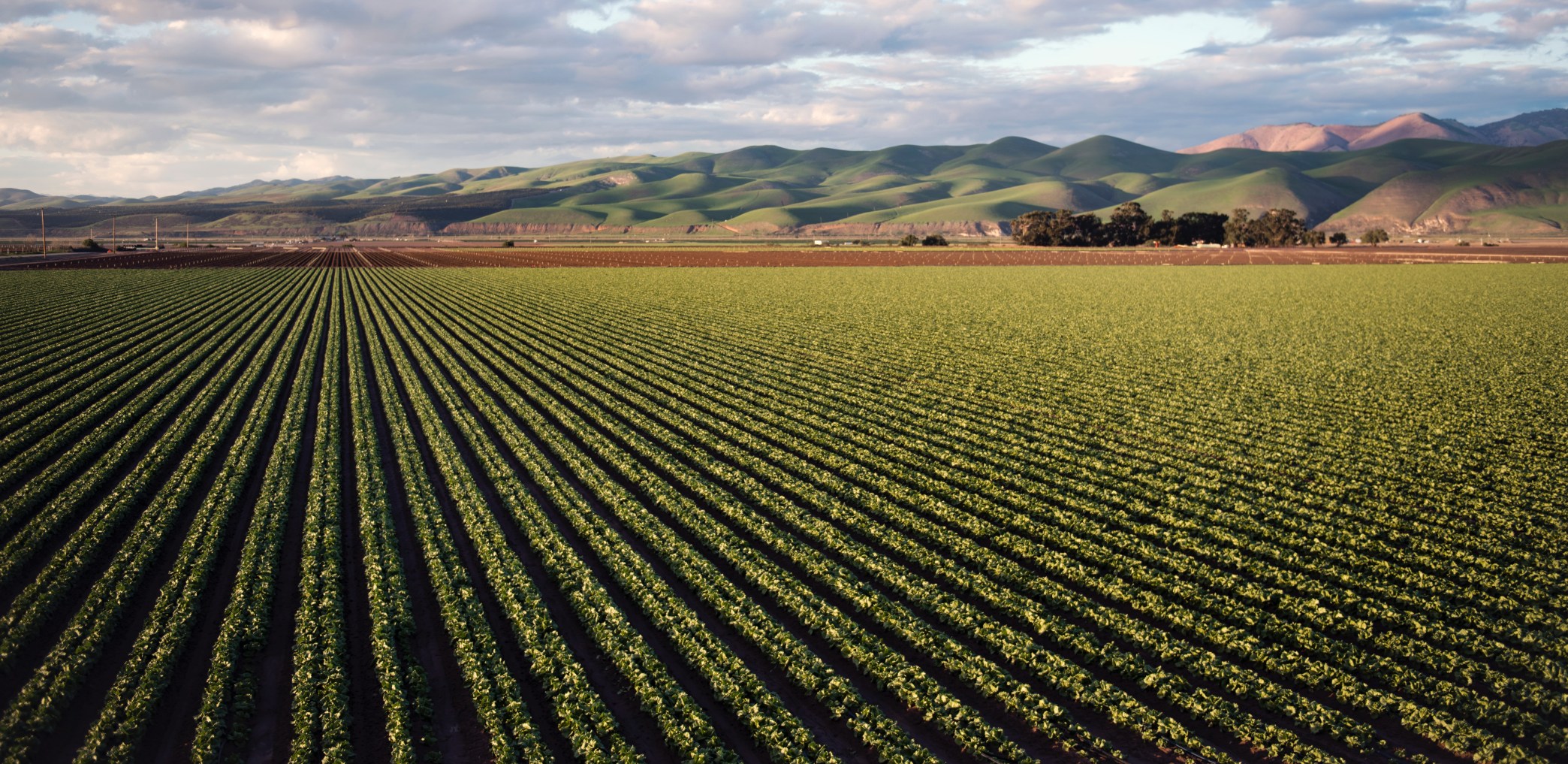
Implications of California’s Water Futures Market
March 9, 2021 | post
In California’s Water Futures Market: Explained, Cora Kammeyer describes how futures markets operate generally and the particulars of California’s version. This new water futures market has attracted considerable attention and hyperbole. Here we explore the potential implications of this novel financial tool through the lens of California water supply reliability.
February 2021 Newsletter
March 8, 2021 | announcement
The monthly newsletter features the Pacific Institute’s research, publications, news about past and upcoming Institute staff outreach efforts, and media coverage of its work and analysis.
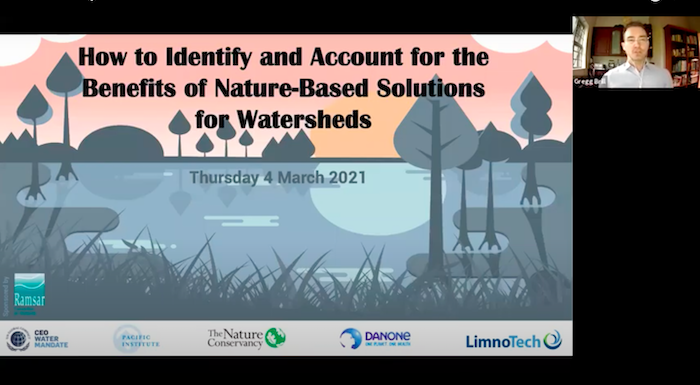
How to Identify and Account for the Benefits of Nature-Based Solutions for Watersheds
March 5, 2021 | video
This webinar was the first in a three-part series and aimed to inform those looking to invest in NBS on how to identify and account for the NBS benefits accrued.
New Guide on Benefit Accounting of Nature-Based Solutions for Watersheds
March 4, 2021 | announcement
March 4, 2021, Oakland, California -- A new guide published by the Pacific Institute and partners provides guidance on how to account for the benefits of nature-based solutions. Benefit Accounting of Nature-Based Solution for Watersheds: Guide helps readers identify and account for the stacked combined water, carbon, and biodiversity benefits provided by these solutions, as well as additional socio-economic benefits accrued.
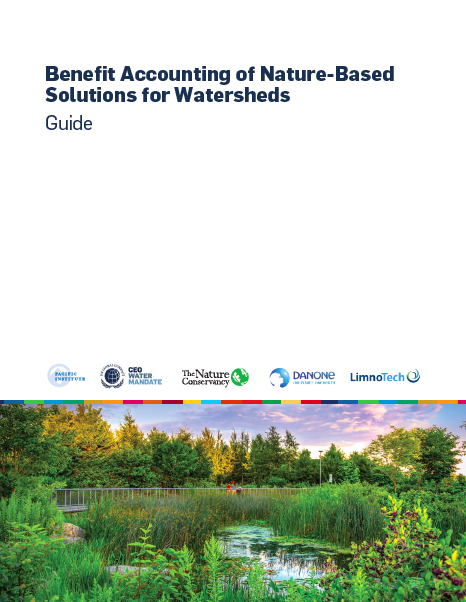
Benefit Accounting of Nature-Based Solutions for Watersheds: Guide
March 4, 2021 | publication
Nature-based solutions use or mimic natural processes to meet societal and environmental needs. They can be used to restore, manage, or protect water resources while also increasing biodiversity and providing additional social and economic benefits. Yet there is no standardized method to identify, estimate, and monitor the benefits that nature-based solutions can provide, making it hard to build the case for investments in these solutions.

Businesses Can (and Should) Help the World “Build Back Better” in the Era of COVID-19
March 3, 2021 | post
What does it mean to “build back better” as the global economy seeks to recover from the shock of COVID-19? The international environmental community has proposed a “green” global recovery that prioritizes reducing greenhouse gas emissions as governments work to create jobs and stimulate economic growth.
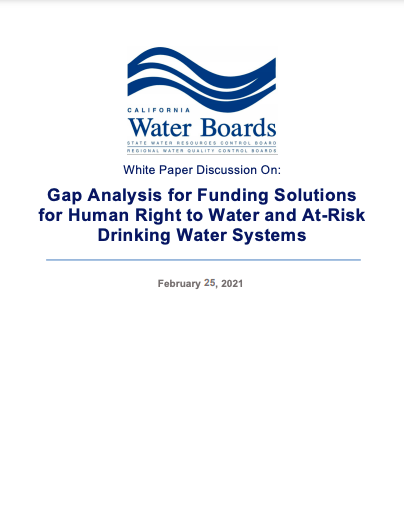
Gap Analysis for Funding Solutions for Human Right to Water and At-Risk Drinking Water Systems
February 25, 2021 | publication
In 2012, California’s Human Right to Water was passed, calling for safe, clean, affordable, and accessible water for all citizens. Then in 2016, the California State Water Resources Control Board (State Water Board) adopted a Human Right to Water Resolution, making the Human Right to Water a primary consideration and priority across its programs.
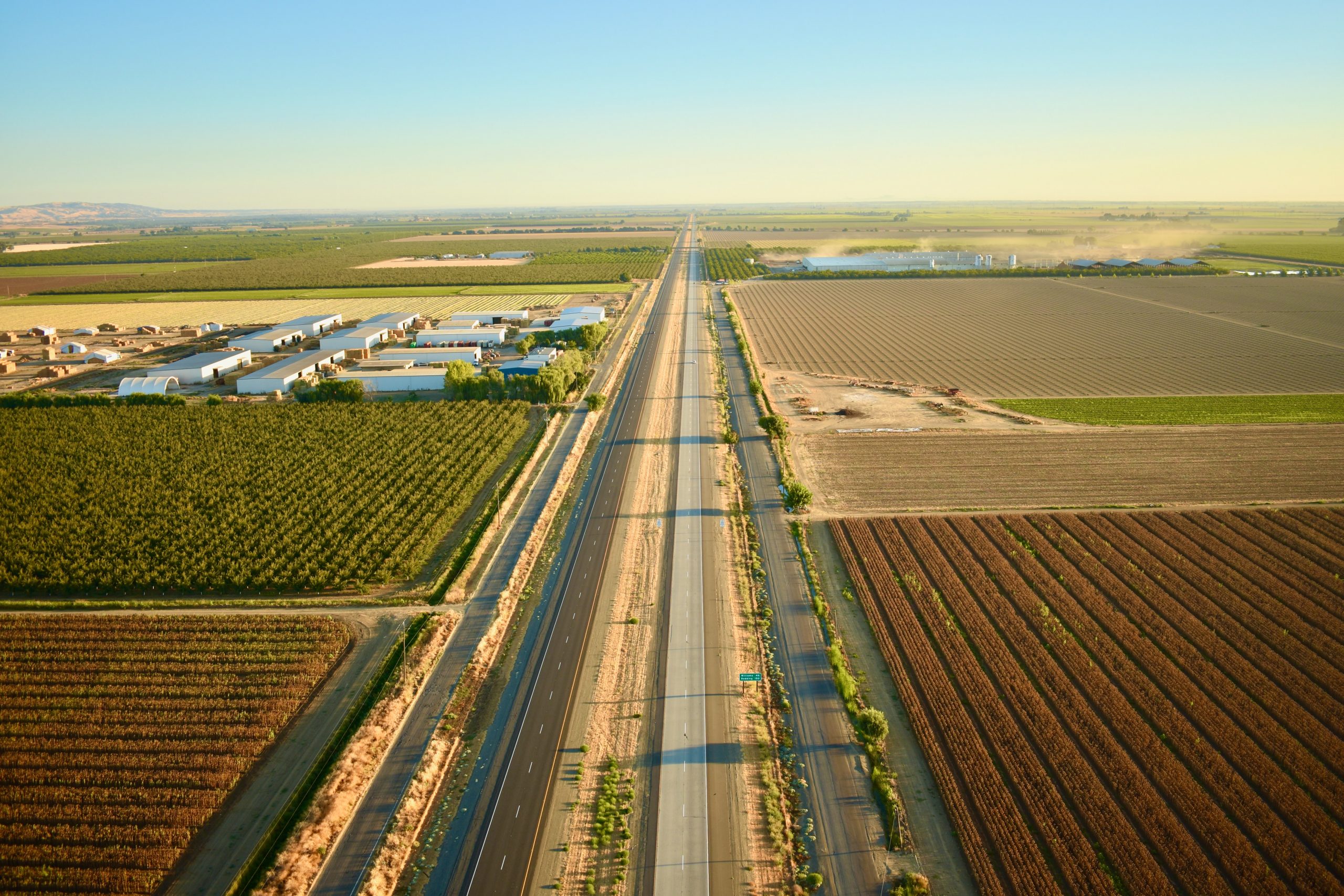
California’s Water Futures Market: Explained
February 24, 2021 | post
A recently launched water futures market in California drew global attention, from Wall Street to the United Nations. While news of the market has brought both skepticism and speculation, much of the coverage has failed to address the fundamental question: what actually is a water futures market?
How Businesses Can Help Build a Water-Resilient Society that Can Bounce Back from Major Societal Disruptions
February 2, 2021 | announcement
February 2, 2021, Oakland, California -- Today the Pacific Institute released a brief outlining the role of the business sector in a robust COVID-19 response. Rebuilding and Resilience: Phases 2 and 3 is the second and final installment of the Pacific Institute’s Water and the COVID-19 Pandemic: A Business Framework for Water and COVID-19 series of briefs.
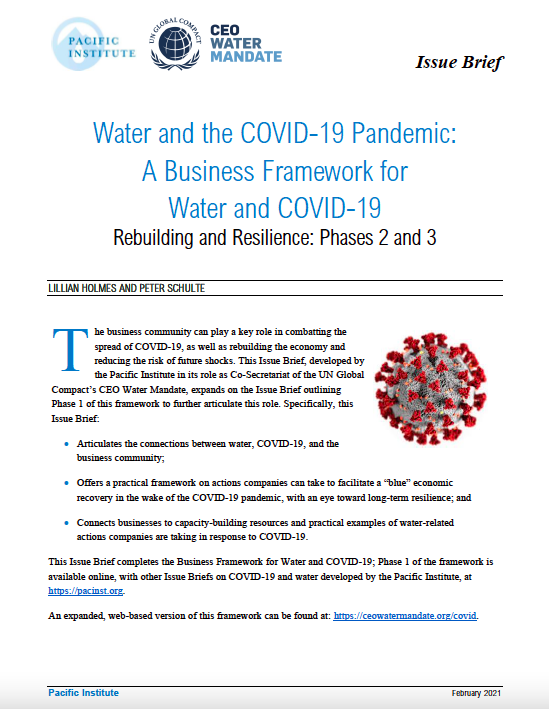
Water and the COVID-19 Pandemic: A Business Framework for Water and COVID-19: Rebuilding and Resilience
February 2, 2021 | publication
The business community has a key role to play in responding to COVID-19, rebuilding the economy, and preventing and mitigating future shock events — both broadly speaking and specifically regarding water and handwashing. This second in the Pacific Institute’s Business Framework for Water and the COVID-19 Pandemic issue brief series continues to explore the role of businesses in a robust COVID-19 response, outlining how businesses can contribute to a “blue” economic recovery and help make society more resilient to future shocks.
January 2021 Newsletter
February 1, 2021 | announcement
The monthly newsletter features the Pacific Institute’s research, publications, news about past and upcoming Institute staff outreach efforts, and media coverage of its work and analysis.
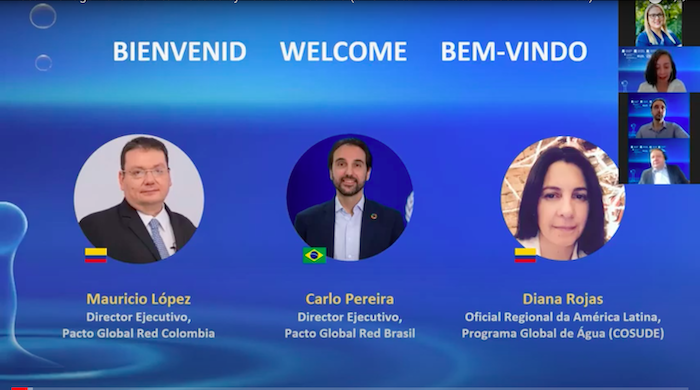
Water Management Put Into Practice by Business Leaders (CEO Water Mandate – Water Action Hub)
January 29, 2021 | video
The Global Compact Local Networks from the Latin America region joined to highlight the importance of the CEO Water Mandate and the Water Action Hub.
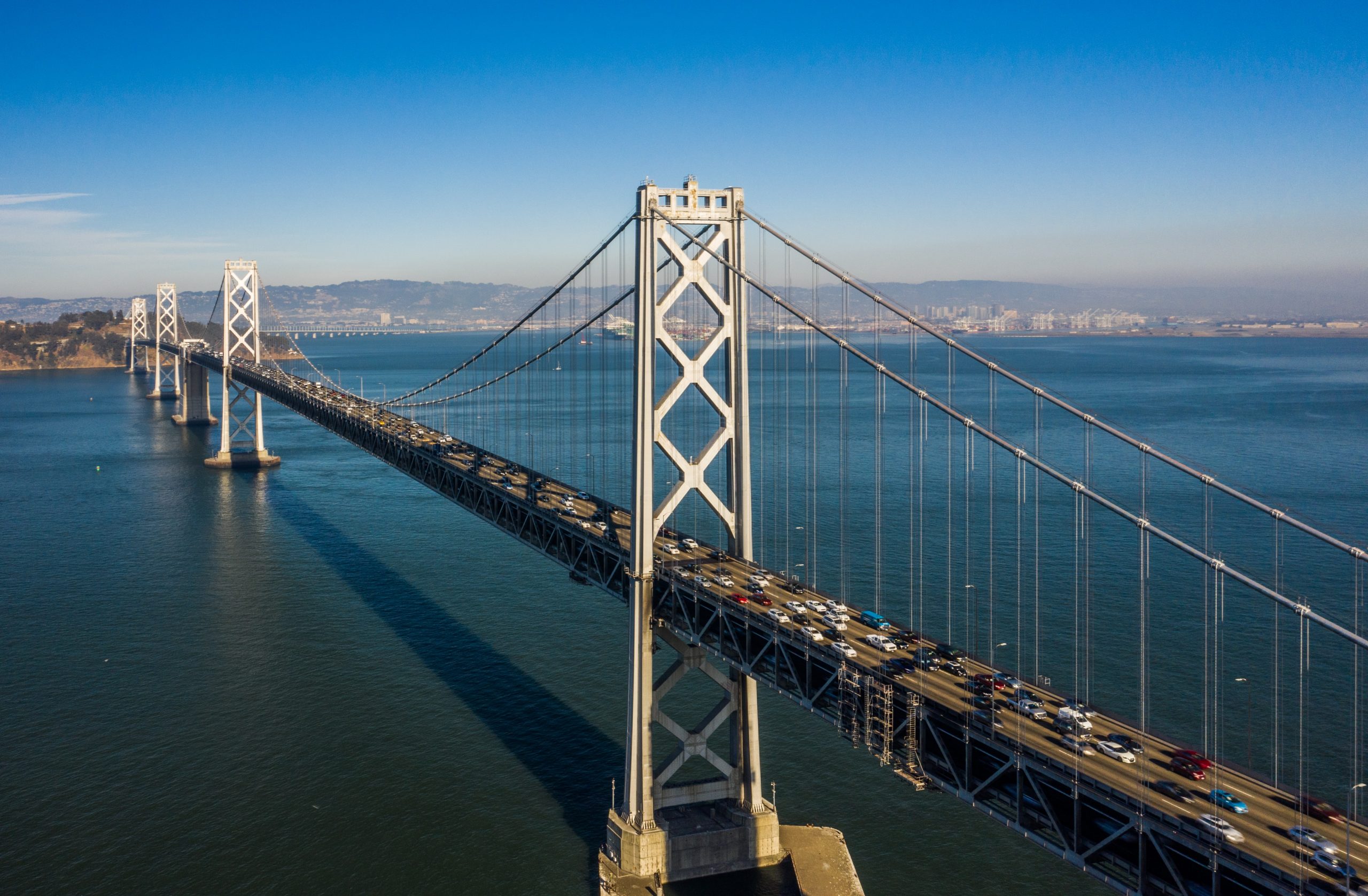
What Role Should Onsite Water Reuse Play in Silicon Valley Water?
January 28, 2021 | post
Water systems in most large urban areas like California’s Silicon Valley are linear and highly centralized. Water is cleaned at a central treatment plant, distributed to homes and businesses through a vast and decades-old system of pipes, used once, and then returned through another set of pipes to a wastewater treatment plant, before being discharged into a nearby waterway like the San Francisco Bay.
New Report Explores Benefits and Challenges of Onsite Water Systems
January 28, 2021 | announcement
January 28, 2021, Oakland, California -- A new report from the Pacific Institute examines the opportunity for onsite water systems in California’s Silicon Valley to improve water resilience. The Role of Onsite Water Systems in Advancing Water Resilience in Silicon Valley finds that onsite and centralized systems can work effectively together when onsite systems are deliberately sited and integrated into the broader water network.
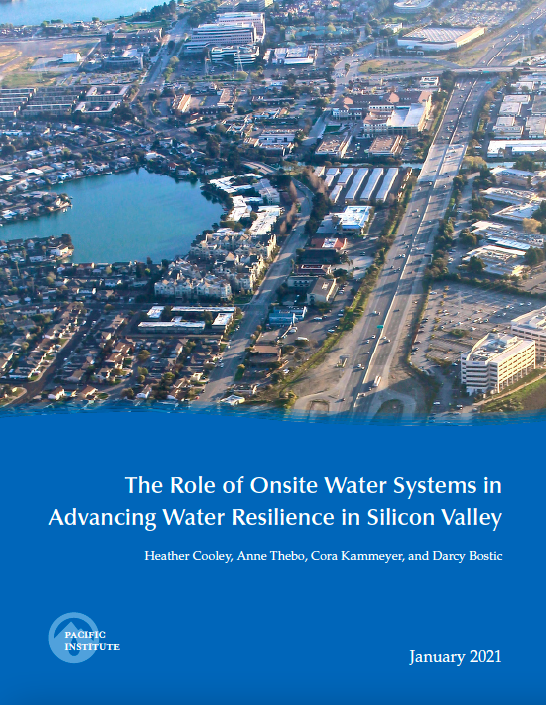
The Role of Onsite Water Systems in Advancing Water Resilience in Silicon Valley
January 28, 2021 | publication
California’s Silicon Valley faces a host of water challenges. The region’s water and wastewater infrastructure are aging, and in some cases are nearing the end of useful life. Continued growth and development are putting additional strains on the region, and climate change is adding to that burden through sea level rise, more intense storms, and more severe droughts. These challenges present risks but also an opportunity to rethink the design, configuration, and operation of water and wastewater systems.
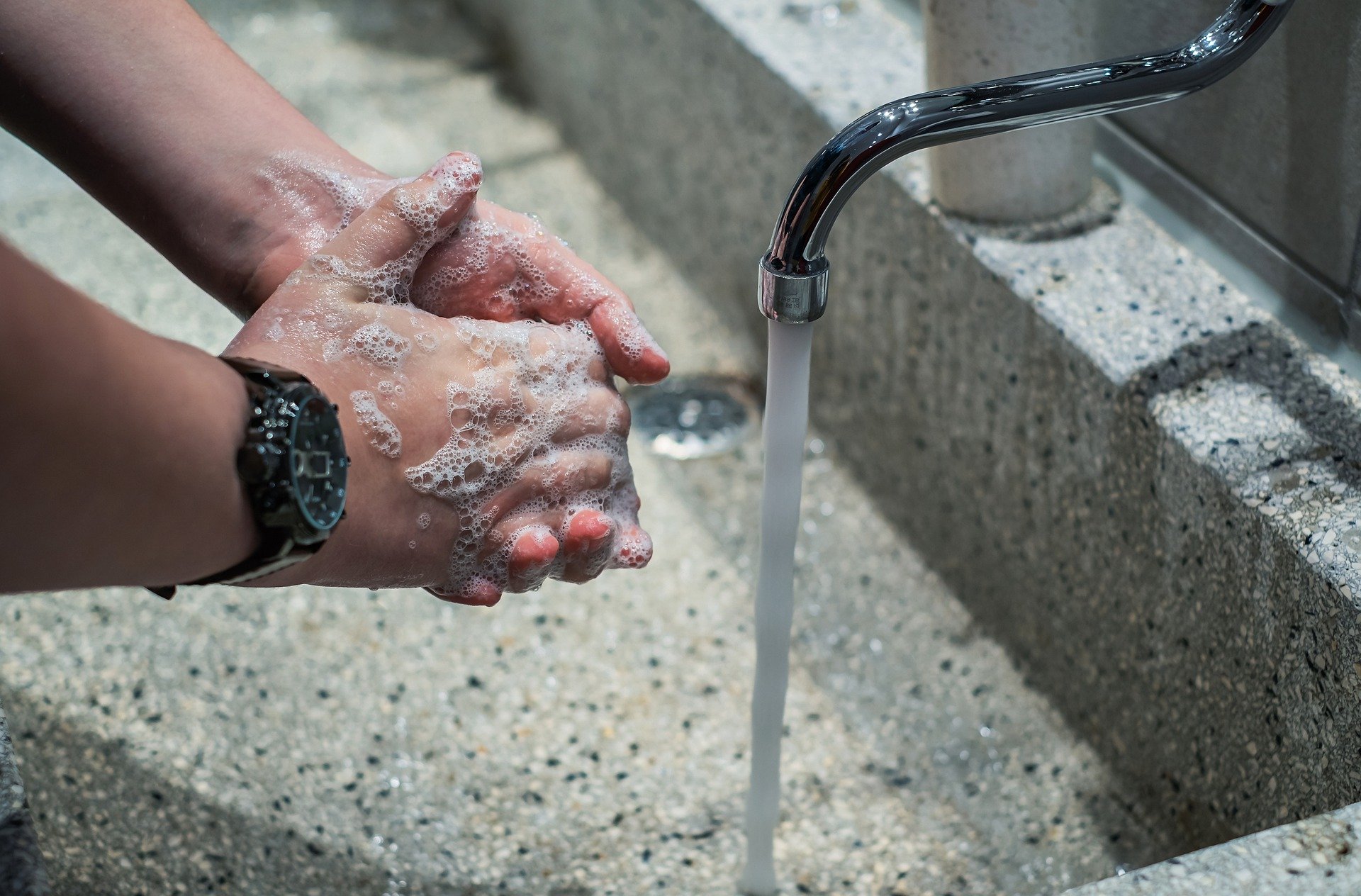
The COVID-19 Pandemic’s Continued Toll on Drinking Water Systems and Their Customers
January 22, 2021 | post
Water systems across the country are facing budget shortfalls as a result of the pandemic and need assistance. For small water systems (systems serving 10,000 people or fewer) total budget shortfalls are estimated to be $4 to 6 billion, primarily caused by decreased demand, delayed payments, and additional costs for protective equipment and sick time.
State Habitat Restoration Project Breaks Ground at Southern End of Salton Sea
January 13, 2021 | announcement
January 13, 2020, Oakland, California -- The California Salton Sea Management Program began construction this week on a project to restore bird and fish habitat at the southern end of the Salton Sea. The Species Conservation Habitat Project (SCH) will reduce wind-borne dust pollution on nearly 4,000 acres to the east and west of the New River delta, lessening dangerous dust pollution affecting nearby communities, while also creating habitat for birds and serving as a water-management pond for future projects in the area.

Q&A: Water Recommendations for the Next Administration
January 7, 2021 | post
The fact is that water challenges in the U.S. are severe and worsening. As the COVID-19 pandemic revealed, poor water infrastructure and the failure to provide universal access to safe water and sanitation threaten public health. Water shortages, poor management, and antiquated water systems threaten the nation’s food supply, ecosystems, and economy. Conflicts over water around the globe threaten our national security. Worsening climate changes are increasing these risks, and the failure to act now will only make solving these issues harder.
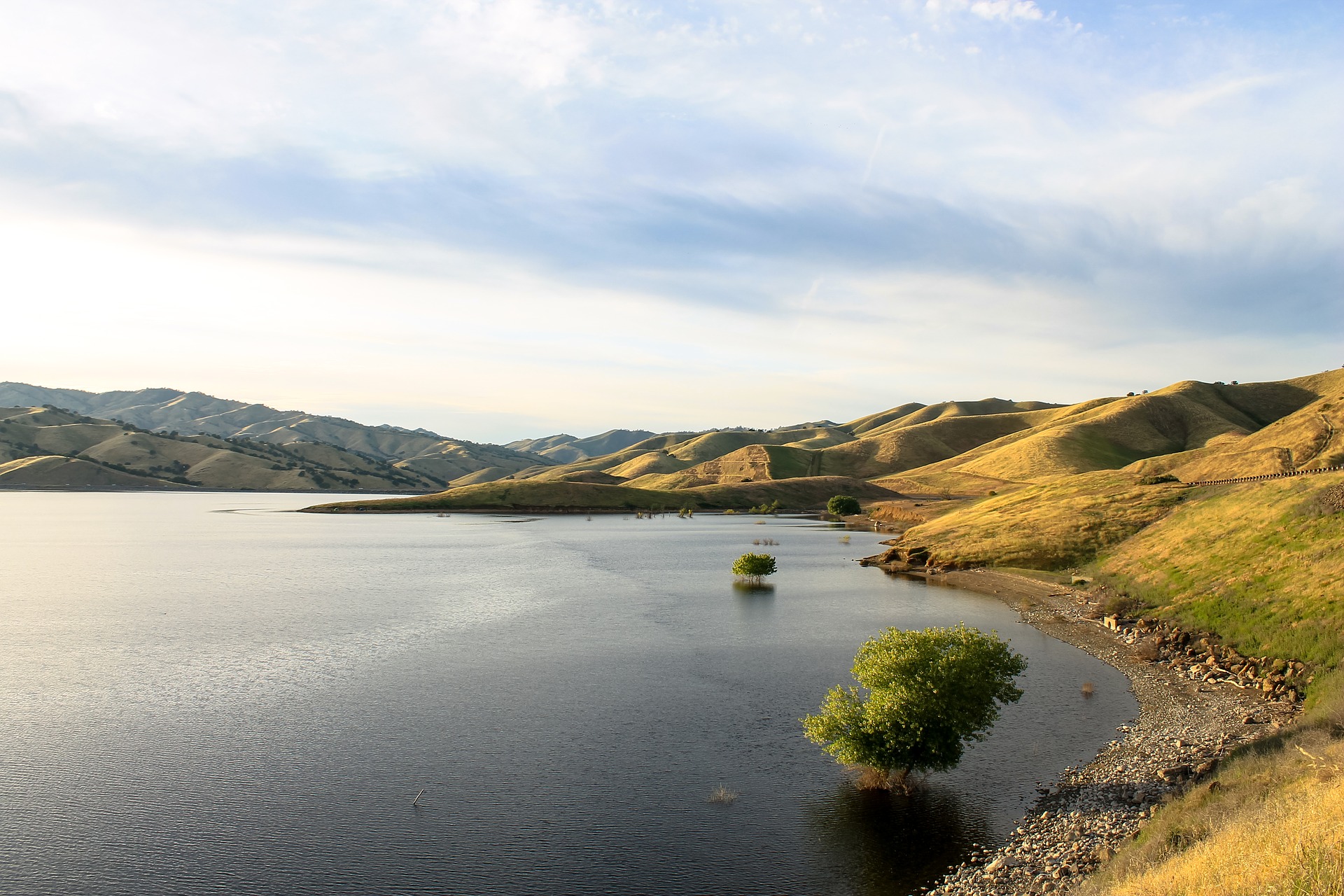
Building Resilience and Addressing Inequities in Small, Underperforming Drinking Water Systems
December 23, 2020 | post
Approximately 25 million people in the United States are served by water systems that regularly fail to meet federal safe drinking water standards. In addition, systems with poor water quality are more likely to serve low‐income and semi‐rural communities, as well as people of color. Internationally, other developed nations like Canada and Australia also struggle with delivering safe drinking water universally, particularly to rural, indigenous communities.
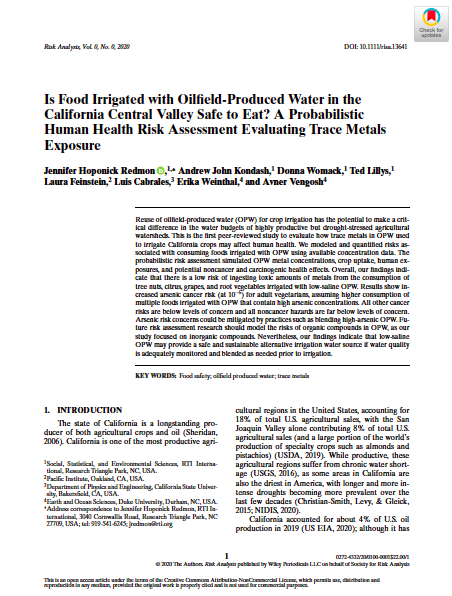
Is Food Irrigated with Oilfield-Produced Water in the California Central Valley Safe to Eat? A Probabilistic Human Health Risk Assessment Evaluating Trace Metals Exposure
December 18, 2020 | publication
In California, drought and a reduction in natural water availability in recent decades have led to a search for alternative water sources for agriculture. One controversial potential source is produced water a byproduct of oil extraction.
New Study Examines How Wastewater from Oilfields Used to Irrigate Crops May Affect Human Health
December 18, 2020 | announcement
A recent article by researchers at Duke University, RTI International, California State University-Bakersfield, and the Pacific Institute evaluates how trace metals from inorganic compounds in produced water used to irrigate California crops may affect human health. “Is Food Irrigated with Oilfield-Produced Water in the California Central Valley Safe to Eat?
December 2020 Newsletter
December 17, 2020 | announcement
The monthly newsletter features the Pacific Institute’s research, publications, news about past and upcoming Institute staff outreach efforts, and media coverage of its work and analysis.
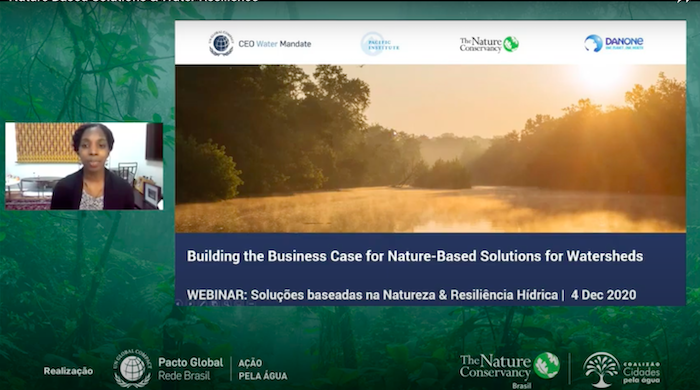
Nature-Based Solutions & Water Resilience
December 14, 2020 | video
This session featured a discussion around Nature-Based Solutions and the launch of the Portuguese version of the publication “Benefit Accounting of Nature-Based Solutions for Watersheds Landscape Assessment.”
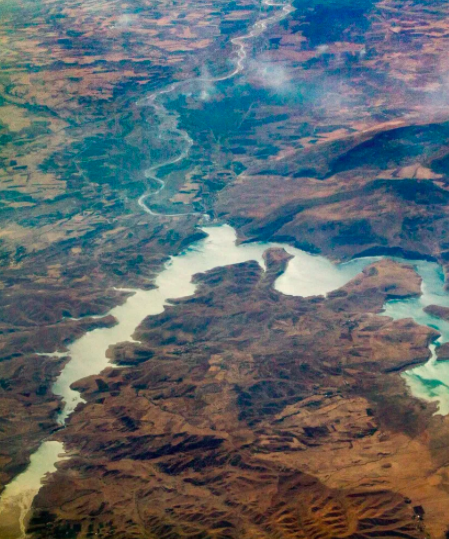
Op-Ed: Water Scarcity Will Increase Risk of Conflict, Says New National Intelligence Report
December 9, 2020 | publication
On December 20, 2019, President Trump signed into law the National Defense Authorization Act (Public Law 116-92), including the Intelligence Authorization Act of FY2020. Section 6722 of that law required a report be prepared on the national security effects of “global water insecurity” and be submitted within 180 days (by late June 2020) to “the congressional intelligence committees, the Committee on Foreign Affairs of the House of Representatives, and the Committee on Foreign Relations of the Senate.”
November 2020 Newsletter
November 30, 2020 | announcement
The monthly newsletter features the Pacific Institute’s research, publications, news about past and upcoming Institute staff outreach efforts, and media coverage of its work and analysis.
Page 12 of 43


